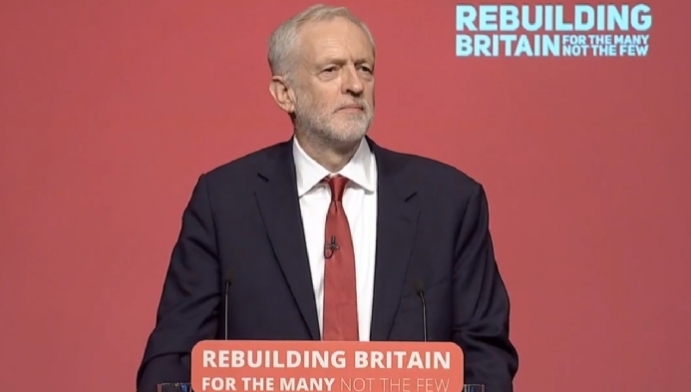Labour will this week force a vote in parliament to declare a national environmental and climate change emergency as confidential documents show the government has spent only a fraction of a £100m fund allocated in 2015 to support clean air projects.

Labour will attempt to force a Commons vote on the declaration of a climate emergency
Jeremy Corbyn’s party will demand on Wednesday (1 May) that the country wakes up to the threat and acts with urgency to avoid more than 1.5°C of warming, which will require global emissions to fall by about 45% from 2010 levels by 2030, reaching “net zero” before 2050.
The move will place Conservative MPs under pressure to back the plan, or explain why they refuse to do so, now fears over the combined problems of air pollution and climate change have risen to the top of the political agenda.
The motion was welcomed by Greta Thunberg, the 16-year-old Swedish climate activist who has criticised the inaction of the world’s politicians. “It is a great first step because it sends a clear signal that we are in a crisis and that the ongoing climate and ecological crises must be our first priority,” she said. “We can not solve an emergency without treating it like an emergency. “I hope the other UK political parties join in and together pass this motion in parliament – and that political parties in other countries will follow their example.”
The motion will call for new targets on the mass rollout of renewable and low carbon energy and transport, proper funding of environmental protection, reversing species decline and developing plans to move towards a zero waste economy.
The plan comes as confidential minutes of a government advisory group obtained by the Observer show how all but a small proportion of a £100m pot allocated to Highways England to combat air pollution “on and near our roads” in 2015 has not been spent, despite a 2020 deadl
Minutes of a meeting of the Highways England designated funds advisory group from last December and marked “Sensitivity – Official”, reveal concerns at the highest level that the money may not be spent within the defined timetable. Highways England is the government company charged with operating, maintaining and improving England’s motorways and major A roads. The minutes state that a “key risk remains of fully investing all remaining air quality designated funding by the end of March 2020. By the end of October 2018, just £2.82m had been invested.”
A Highways England spokesperson said on Saturday night that the total spent was now £7.7m: “We aim to deliver £75m of investment, as set out in the government’s road investment strategy.
“Since 2015 we have been doing the necessary investigation to find meaningful and effective measures to improve air quality alongside our network; to date we have spent £7.7m, of the air quality funds, including support for the electric van demonstration centre in Leeds, which is being delivered in partnership with Leeds city council, and electric charging points. We are also progressing the rollout of the national air quality barrier programme, and continue to support local authorities with the delivery of their clean air zones.”
Polly Billington, director of UK100, a network that campaigns for clean air, said on Saturday night (27 April): “This is scandalous. Ministers and quangos have sat on funding that should be used to clean up toxic fumes from our major roads and motorways 700 people in the UK die every week from diseases related to air pollution, 20 times the number of deaths in road accidents. No more dithering or delays – the government must deliver this funding urgently to prevent more needless illness and deaths.”
UK100 has written to the transport secretary Chris Grayling and the chief executive of Highways England, Jim O’Sullivan, to demand a comprehensive action plan to use the remaining funding, including a major expansion of electric vehicle charging points. As of January 2019, there are just under 16,000 electric charging points in England.
This week, Pascal Lamy, the World Trade Organisation’s former director general, will add to the pressure on the government, warning a London audience that Brexit risks damaging the UK’s leadership on climate change. Lamy’s intervention accompanies new research from leading lawyers showing that existing preparations would not prevent damaging roll-backs on key climate change and environmental protections. It comes just days before the Committee on Climate Change publishes advice to the government on long-term climate change targets.
Lamy will say: “It is vital that any new trade deal or environment treaty between the UK and EU protects the region’s global leadership position on climate change. Without safeguards to ensure strong continued cooperation and alignment, Brexit could destroy environmental protections – well beyond allowing chlorinated chicken imports.”
Writing in Sunday’s Observer shadow business secretary Rebecca Long-Bailey says: “Unless we take rapid action to reduce the amount of carbon dioxide we are releasing into the atmosphere, we face total catastrophe.”
Toby Helm
This article first appeared on the Guardian
edie is part of the Guardian Environment Network
